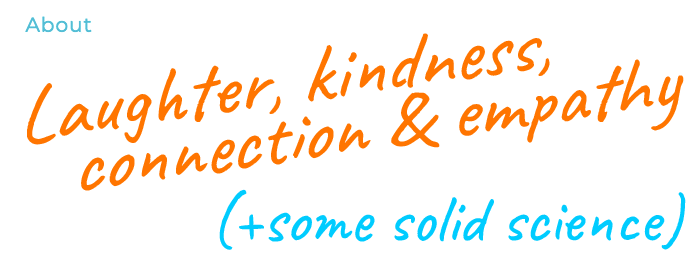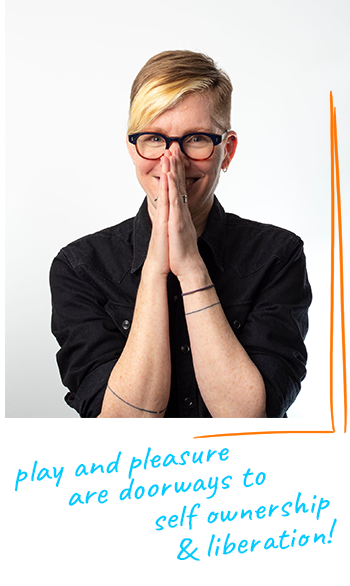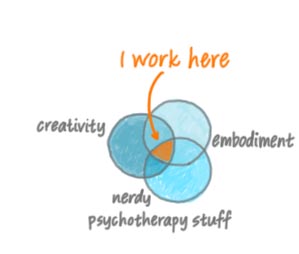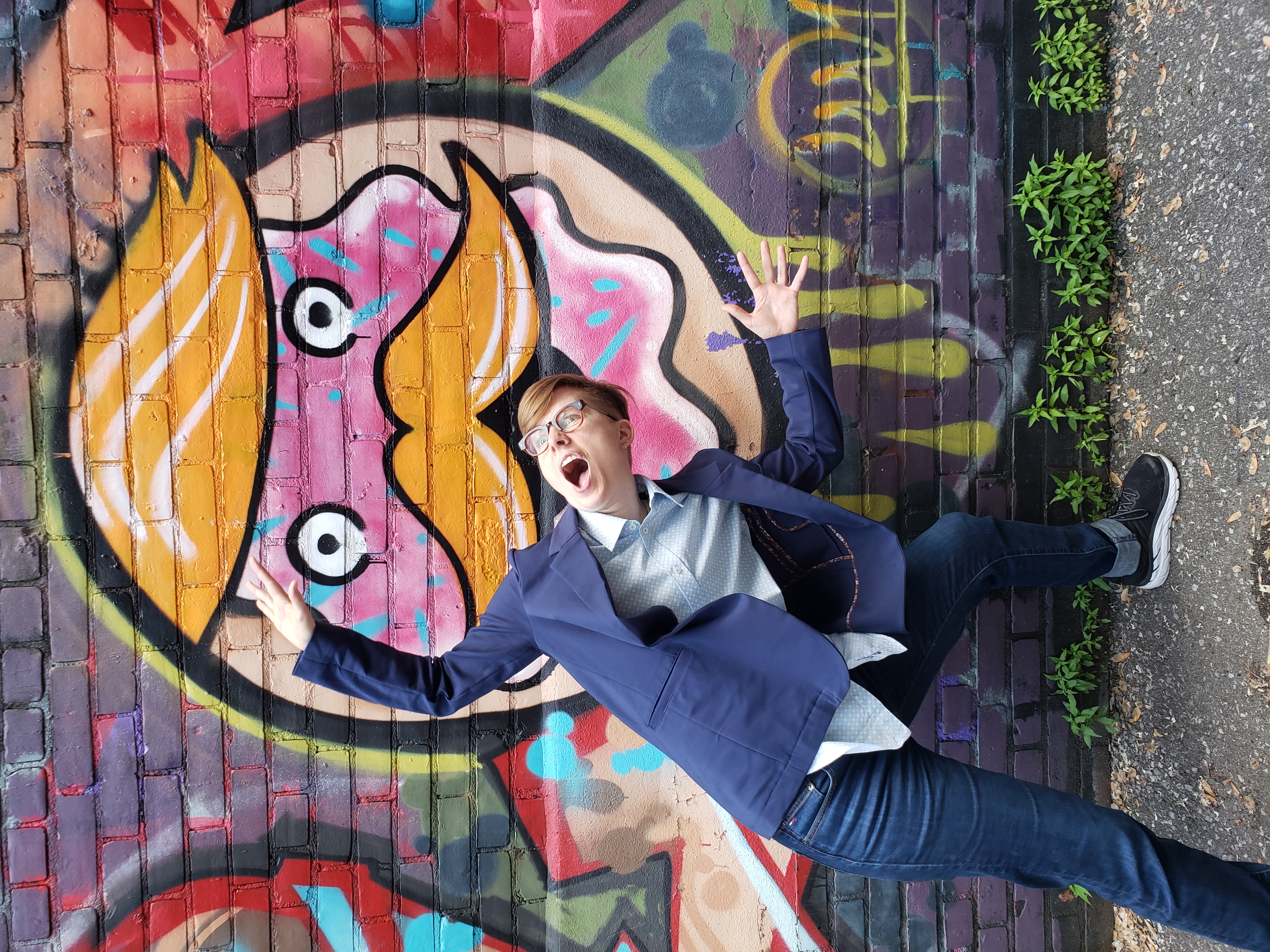
these are at the heart of how I support you
to build a joyful relationship with yourself and those you love
the unofficial stuff:
Your body belongs to you and you alone.
There is no wrong way to have a body.
Your body holds wisdom, opportunity and pleasure that are your birthright.
Your voice, choice and boundaries are at the heart of your unique sexual satisfaction and gender joy.
You are not alone in shame around your body, sexuality and gender.
Pleasure is a profound healer. It is political and powerful.


the official stuff:
I’m a trauma informed Registered Psychotherapist,
in private practice for over a decade in Toronto.
My practice is rooted in values of:
harm reduction,
sex positivity
and anti-oppression.

Okay, so why do I specialize in work with gender, erotic & relational minorities…
Because OMG we’re beautiful humans!
Because my own experience showed me the challenge of finding a therapist who is knowledgeable about the unique issues that gender, erotic and relational minorities face. I needed a therapist that would neither shy away from difference, nor make it an unnecessary focus of therapy. I needed a therapist who could bring awareness of oppressive systems while working at the very personal level of trauma and growth. I saw the need and I became the sort of therapist I wish I had!
And why relationship and sex therapy…
Because trauma and our culture often work to separate us from our bodies, our internal knowing and our right to feel pleasure and connection through our bodies and with others. I became a gender, sex and relationship therapist because in my own healing journey I could not fully reconnect with my own body and claim a full joyfulness until I experienced healing around my experience of gender and sexuality. Gender and sexuality are profoundly relational and in this process I also became deeply interested in understanding how relationships can create healing, how they can foster growth, expansiveness and joy.
Feeling curious about what sex therapy is like? Find out more.


striving for a shame free, stigma free therapeutic experience
centring compassion, gentleness, play and curiosity
welcoming all bodies, genders and sexualities
bringing awareness to how the personal interacts with oppressive systems
inviting access to your sexuality as access to your life force energy
believes gender is an elaborate sex toy (thank you Xan West)
believes in your capacity to live in your body the way you want
practicing on the traditional territory of the Mississauga, Haudenosauneega, and Anishinabewaki First Nations

(a.k.a what I’ve studied)

Yup, I have an insatiable appetite for learning, here are some of the trainings I have completed.
-
Currently studying Somatic Sex Education (note: I do not provide touch based services)
-
Currently Emotionally Integrated Voice, taught by Fides Krucker
-
Ongoing regular meetings with supervisor and supervision group specifically for sex therapy and couples/dyad related therapy
-
Intensive Sex Therapy Training Program, University of Guelph
-
Optimal Sexual Experiences Training
-
Emotion Focused Therapy, Sex as a Safe Adventure Training
-
Sexual Attitudes Reassessment (standard training for sex therapists, where we examine our own biases)
-
American Association of Sexuality Educators, Councillors and Therapists certified programs at Modern Sex Therapy Institutes (trainings in BDSM, Discordant Desire, Polyamory)
-
Emotion Focused Therapy Externship
-
Emotion Focused Therapy Core Skills
-
Emotion Focused Therapy Attachment Injury Repair Model
-
Esther Perel, Sessions program and seminars
-
Regular meetings with supervisor and supervision group specifically for sex and relationship therapy work
-
Most of my learning has come from my community and consuming media, books and articles on all things trans and gender diverse. Attending conferences such as the Queer and Trans Advocacy Network Conference also form part of my ongoing learning.
-
Part of an ongoing supervision group that focuses on therapeutic work with gender diversity
-
CAMH ECHO Trans and Gender Diverse Health Care Program
-
CAMH ECHO Trans and Gender Diverse Health Care Program – Advanced Topics
Sensorimotor Psychotherapy:
-
Level I: Affect Dysregulation, Survival Defences, and Traumatic Memory
-
Level II: Emotional Processing, Meaning Making, and Attachment Repair
-
Working with the connections between healing, community accountability and individual therapy shouldn’t be in it’s own category, it actually flows through how I approach all training I engage in.
-
There are particular trainings that have shaped my perspectives, in particular a year long Guided Book Study of My Grandmother’s Hands which took an embodied approach anti-racism work or a recent short workshop I took on Antiracism Supervision with Dr. Yamonte Cooper (2021) which was less based in idealism than the work of Resmaa Menakem.
-
I engage in ongoing supervision that has a systemic awareness focus and in my ongoing somatic sex education training there is a strong ongoing social justice and anti-oppressive lens.
I have an ongoing regular meditation practice on my own and with a group.
University of Toronto Certificate programs:
-
Applied Mindfulness Meditation Foundations
-
Mindfulness Meditation Specialist
(specializing in applications of mindfulness within clinical psychotherapy)
I trained in Gestalt therapy for 5 years at the Gestalt Institute of Toronto, followed by over 4 years of supervised clinical practice.
From back when my creativity was expressed visually my education includes:
-
University of Guelph, Honours BA (in Visual Arts, graduated with distinction)
-
Sheridan College, Post Graduate Diploma in New Media Design, (graduated with distinction)
I’m a Registered Psychotherapist and member of the Canadian Association for Psychodynamic Therapy.
I have been in private practice since 2012.

So what’s my story?
I want to know your story but I am happy to share mine. I’ve experienced life from many different vantage points and it has brought me respect for the power of perspective. I grew up rural and urban, working class and middle class, with a single parent and larger family.
I know the invisibility and privilege of straight appearing relationship and also being misread in queer relationship. I have felt able bodied and at times struggled with chronic illness that has made me grapple with my own limitations. I have explored challenges and gifts to be found in monogamous and ethically non-monogamous relationship. I have wrestled with carving my own path as a parent. I have moved from not having language for my gender though to an understanding of my gender as an expansive space of capacity and self ownership, and reclaimed my erotic self in the process.
As a white bodied settler, queer, and non-binary person I work through an anti-oppression lens because in my own life I strive to understand the systems I exist within and how they impact me and those around me. This is not my first career. I originally trained as a visual artist and worked in the fields of design and communication for over a decade. Having a creative background and having navigated systems in both the corporate and non-profit sector has given me lived experience of what it means to walk into the creative unknown and what it is to navigate systems.
The journeys I have traveled mean that I embody a felt sense of healing as a process. I know the fear and expansiveness of stepping into the unknown. I understand pleasure, play and spontaneity as powerful antidotes to how trauma locks us down and contracts us into a search for safety.
I have learned to return to my body as a source of wisdom. I have learned the power of sweet compassion for the self. I have learned liberation as an active process not a destination. It is living my own healing journey with its many intersections and unknowns that allows me to be with my clients as they figure out their own liberation, their own healing journey.


Reclaiming these things is going beyond simply getting to “good enough.”
Therapy is a place to explore the complexities, absurdities and hard feels of being a human. But happiness, laughter and playfulness are serious business in therapy too.
This doesn’t mean I will have you laughing through your tears but it does mean I am invested in you finding sources of lightness and strength while you navigate what is challenging.

(a.k.a frequently asked questions… questions are good!)
My fee is $150.44 for a 50 minute session ($170 HST inclusive). This fee is the same no matter what type of work we are doing together.
I accept e-transfer.
Many insurance providers will cover the cost or part of the cost of psychotherapy with Registered Psychotherapists (RP). There are however employers who have not yet updated their benefits packages to include RP’s. I recommend you verify with your employer or HR services if Registered Psychotherapists are included as part of your plan.
Just as an aside, psychotherapy is classified as a medical expense for income tax purposes and can be claimed as a medical expense in Ontario.
There is no charge to cancel or reschedule with at least 48 hours notice. You will be charged an $80 fee if less than 48 hours notice is given.
I see clients Monday – Thursday 11:00 am to 4:45 pm. I do not offer evening, Friday or weekend sessions.
Generally sessions are 50 minutes in length with several minutes at the end for wrapping up and scheduling.
I do offer 75 minute sessions and intensives where multiple session occur in a single day with breaks in between. I offer these based on the need of the client involved. If you are interested in sessions longer than 50 minutes let’s connect and figure out what would be a good fit for you.
Not currently. While I do not intend to stay exclusively online in the future I do not have a timeline for moving back to in-person work.
Before the consultation starts I will send you online intake forms. Filling out these forms will give me a chance to know a bit about you before we meet and will also provide you with the policies of my therapy practice. On the day of the consultation I will send via email a Zoom link for the meeting.
Consultations are 50 minutes long. Many therapist offer only a free 15-20 minute consultation. I offer a longer one because I believe having a good fit between therapist and client is very important. I want to give us both time to get to know one another. This time also offers you an opportunity to ask any questions you have and for us to go over the intake forms.
The consultation and the first 2 sessions we have together are all part of an intake process in which we are determining if we are a good fit to work together. If we find your goals in therapy are not best met by my expertise then I will provide you with referral options.
It is so understandable to want to know how long therapy will take. The length of therapy depends on the challenges you wish to resolve. How long you stay in therapy is always your choice. Some people stay in therapy for a short while, others use therapy for personal development over a longer period.
The frequency of sessions depend on your needs. I generally recommend weekly at the start in order to build rapport and see momentum. This can shift to bi-weekly if and when that feels aligned with work. I seldom work at frequencies less than bi-weekly as it can be difficult to sustain the therapeutic work with longer intervals between session. That said, I base frequency on your needs and am always open to discussion about what frequency you feel would work best for you.
I only work with individuals 19 and older.
Good Questions about Pleasure, Embodiment and Sex Therapy
Sex therapy sessions are a lot like any other counselling session. There will be an initial assessment process to gather information about your concerns. I will ask you questions about your personal, physical and sexual history in order to better understand what you are going through. I take a holistic approach which means I want to get a sense of biological, psychological and social factors that may be impacting you. I want to understand you as a whole person. I may recommend you meet with your primary doctor or another specialist to rule out other issues or biological factors in order to facilitate the work we are doing. I may also introduce you strategies to support you in moving towards your goals. This will all be accomplished through our discussions.
Sex therapy does not involve any sexual relationship between the therapist and client. There will not be any kind of physical touch involved and clothes always stay on. What makes sex therapy distinct from regular therapy is that the therapist has sought additional training in the area of sexuality.
There is no one size fits all approach for sex therapy. The same sexual health concern may arise in different people for different reasons. In order to determine the approaches that will be most helpful we need to gather information. We will work together from that information to explore how you can achieve your goals.
Sex therapy can address many issues, a list of which could be very long. To give you some examples of the sorts of work I do most often, I help people explore questions and concerns related to sexual identity, gender identity, sexual changes during gender transition, sexual shame, differing desire levels and more.
Sex therapy can also be helpful for those who want to enhance their sexual health and wellness.
Tell me more about pleasure, embodiment and sex therapy
Good Questions about Gender Affirming Therapy
Gender affirming therapy is not directive. It is a chance for you to take a step back and explore all the things that make you who you are and what makes you feel good. My role will be to support your awareness and curiosity while holding space for you to talk about things that may feel confusing or difficult. The goal of gender affirming therapy is not to become a different gender but to help you feel happier and more confident in whatever relationship to gender you have.
Absolutely! You don’t have to be in any particular place with your gender identity to benefit from not being alone as you explore your feelings and experiences with gender. You can be trans, cis, non-binary, two-spirit or have no labels at all! You don’t have to pick a gender or be any particular way.
- Helping you become happier and more confident as who you are.
- Helping you decide if you would like to make changes, socially (ie. pronouns, labels and ways of dressing, hair style and other forms of gender expression, name change) or physically (ie. hormones, surgeries, voice training) and pointing you in the direction of resources to support you in those processes.
- Support during trial and error processes of self discovery and the impacts of social and physical transition
- Support exploring your sense of gender congruence – how much what you feel inside matches your expression outside
- Support in working with gender dysphoria and finding gender euphoria
- Help in exploring your history and how it has impacted your sense of self
- When you want to work on other issues such as anxiety and trauma and want a therapist that understand how gender issues intersect with these things
Tell me more about gender affirming therapy
Good Questions about Relationship Therapy
Before the consultation starts I will send you online intake forms. Filling out these forms will give me a chance to know a bit about you before we meet and will also provide you with the policies of my therapy practice. On the day of the consultation I will send via email a Zoom link for the meeting.
Consultations are 50 minutes long. Many therapist offer only a free 15-20 minute consultation. I offer a longer one because I believe having a good fit between therapist and client is very important. I want to give us all time to get to know one another. This time also offers you an opportunity to ask any questions you have and for us to go over the intake forms. If we find your goals in therapy are not best met by my expertise then I will provide you with referral options.
After the consultation I will meet individually with each person in the relationship. This will allow me to get a better sense of each of your histories and individual concerns. If at that time it feels like we are a good fit to work together we will begin relationship therapy sessions with everyone in the relationship present.
There are many reasons a person may be reluctant to enter therapy. Sometimes people are concerned that they won’t know how to do therapy “correctly,” that they might be blamed for relationship problems, that the therapist won’t understand them or will take sides. They may have a belief that people only go to relationship therapy when they want to breakup or feel overwhelmed by the thought of talking about what they are experiencing.
I am here to support everyone in the relationship, to help open up communication and address fears that may be related to engaging in the process of relationship therapy. I see the dynamics of relationships as created by all the individuals involved. I am here to meet each of you where you are, even if you are in very different places with regard to therapy.
So there is no one size fits all answer to this question. For therapy to be effective all partners need to be engaged in the process, be open to exploring possibilities for change and taking responsibility for their contributions to the dynamics in the relationship. For those who have reluctance to engage in therapy it is important to address their concerns about the process so they can determine their interest in engaging in the process further.
No. The type of therapy I do needs each of us to be tuned into ourselves and each other. Kids are wonderful and cute, they also require our attention and it can be difficult and even inappropriate to be really open about certain things when your child is listening. For both of these reasons I do not work with children in session.